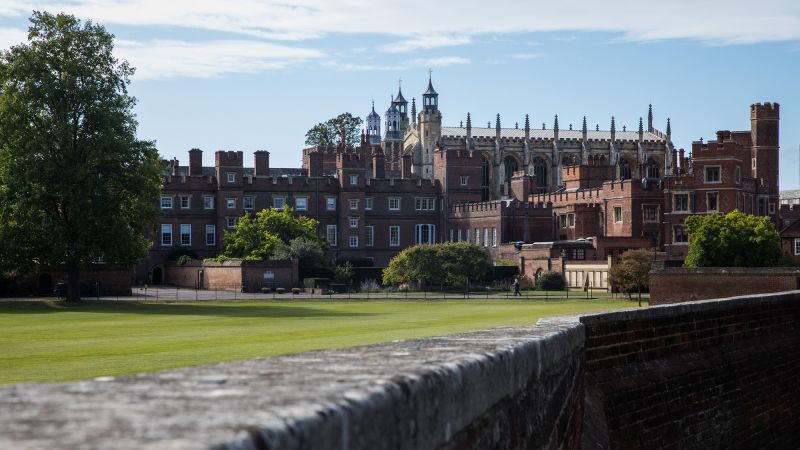
Want your child to go to Eton? Get ready to pay $13,000 more each year
CNN
Private schools in Britain may conjure up images of rolling lawns, pristine tennis courts, and dormitory rooms, serving as gilded hothouses of privilege. Eton College, perhaps the most famous, has educated no fewer than 20 UK prime ministers.
Private schools in Britain conjure up images of rolling lawns, pristine tennis courts, and dormitory rooms, serving as gilded hothouses of privilege. Eton College, perhaps the most famous, has educated no fewer than 20 UK prime ministers. These schools may soon become even more exclusive if the opposition Labour Party wins the country’s general election next month — which polls suggest it will do by a wide margin — and abolishes a long-standing 20% tax break on their fees. If Eton raises its fees by the full amount, rather than finding other ways to foot its bigger tax bill, parents sending their child to the illustrious school can expect to pay an extra £10,500 ($13,360) per year on top of the current standard fees of £52,750 ($67,107). Labour estimates that taxes on private schools will raise £1.5 billion ($1.9 billion) a year, money it says is urgently needed to improve the state school system, which is used by about 93% of pupils. The policy appears to have widespread support — an opinion poll conducted last week by YouGov found that almost two-thirds of respondents backed the idea. But private schools are pushing back hard, saying it could mean financial ruin for many of them and force thousands of children — some from very modest backgrounds and with special educational needs — to switch to hard-pressed state schools. Not every private school is “synonymous with privilege and great wealth,” argues Sue Hannam, headteacher at Lichfield Cathedral School, a private school in central England. The vast majority of private, or so-called “independent,” schools in the United Kingdom have “very little in common” with their larger, more famous peers.

Nashville officials on Monday announced a massive public transportation partnership with Elon Musk’s The Boring Company to alleviate the city’s significant traffic congestion problems for travelers bound to the airport. But Musk has previously made many similar promises in a host of other American cities with little to show for it.





















 Run 3 Space | Play Space Running Game
Run 3 Space | Play Space Running Game Traffic Jam 3D | Online Racing Game
Traffic Jam 3D | Online Racing Game Duck Hunt | Play Old Classic Game
Duck Hunt | Play Old Classic Game










